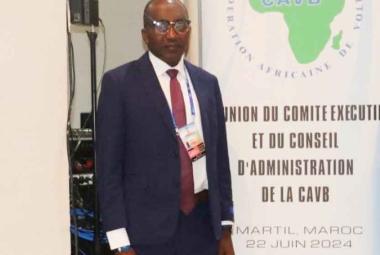By Adam Nyang
Migration and development have always been entwined. It is human nature to move from one place to another in search of greener pasture. Whether it is internal migration, that is movement of people within a country or external migration - moving from one country to another by legal or illegal means - migration always has a direct or indirect effect to the development of a country. The Gambia is one of the smallest countries in Africa with an estimated population of 2.3 million.
According to IOM The Gambia, migration plays a significant role in the Gambian society. Economically, the estimated 118,000 migrants in the diaspora contribute to national development through the remittances they send home. Apparently, it makes up over 20 percent of the country’s GDP. The other ways in which these migrants who live abroad boost the country’s economy is by investing in business ventures run by Gambians who live in the country or by establishing their own.
This is usually the case for migrants who want to return home and want to upgrade their quality of life and those around them. Establishing a business is one of the best ways to do that. It reduces dependency rate on the migrants placed upon them by family members and close relatives. It creates job opportunities, tax revenue and over all, contributes to development in its own way.
Some of the business ventures migrants engage in include but are not limited to the exportation and selling of used cars and household items to The Gambia. Some establish logistics companies and are into the buying and reselling of materials like basalt. Some return to take up large scale farming like Maruo Farms Limited that supports rice farmers, public sector farmers and private sector enterprises across the rice value chain in The Gambia.
Migrants in the diaspora also play an important role in the political landscape of the country. Despite the fact that living abroad means they cannot vote; this has never stopped them from engaging in the political process in one way or another. During the 2017 impasse, they made their voices heard on the situation and fought for the democracy of The Gambia to be given its due. Even before the 2016 election, they’d served as watchdogs and spoke vehemently against the atrocities that were being committed by the former government. Being out of the country gave them the protection that allowed them to exercise their right to freely express themselves for the betterment of the country. This in turn, inspired even those residing in the country to bravely speak up as well. This goes to show that patriotism has no physical boundaries and even those living outside the country can demonstrate theirs.
One of the most important reasons people migrate is for educational purposes. Every year, hundreds of Gambians travel outside of the country to pursue degrees and other non-conventional forms of education for their own betterment and that of the country’s by extension. Through knowledge and skills transfer, the country benefits greatly from these migrants. Some return to work for the government right after their studies whilst others might spend quite a number of years working abroad garnering experience that could help in whatever sector they choose to work for when they ultimately return.
Studying and working in a more developed country could essentially equip you with more advanced skills or knowledge that are lacking in The Gambia. This is the reason why some migrants would choose to give back by establishing foundations and associations in which they could share acquired skills and knowledge in much needed areas; such as agriculture, technology and civic work.
Governments in low- and middle- income countries should always look at how to devise new strategies when it comes to engaging the diaspora as the importance of their contributions to national development cannot be over emphasised. Relatively, The Gambia has had a lot of success in this area and other countries could learn a thing or two from some of the projects that have been launched in that regard.
MSDG Programme
According to World Economic Forum, the Migration and Sustainable Development in The Gambia (MSDG) programme is a success story that gives important lessons on how to strengthen diaspora engagement for development in a comprehensive and sustainable way.
Launched in 2017 by GK Partners Limited, the aim of the programme is to “enhance the role of The Gambia diaspora in national development as the Eighth Region of the Country”. It has undertaken about 100 specific development activities, most of them new to The Gambia and nonexistent in many low- and middle-income countries.
The third phase of the project is in motion after the success of the first two phases which saw the declaration of the diaspora as the “eighth region of the country”, the formulation of government policy and the Gambian Diaspora Strategy (GDS). The policy has been fully incorporated in the Gambia’s National Development Plan. The project has also led to the creation of The Gambia Diaspora and Migration Directorate and provided technical support to government ministries, departments and agencies.
The creation of projects such as these should be taken into consideration in government policies and plans because the ways in which migrants in the diaspora can contribute to the development of origin and host nations are diverse and multi-faceted.



